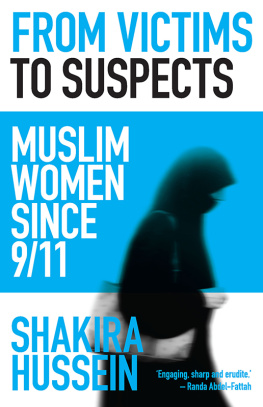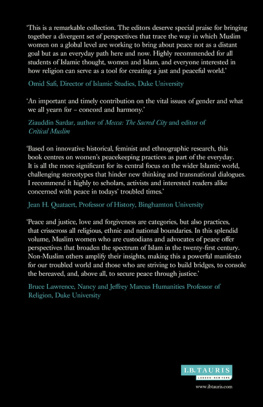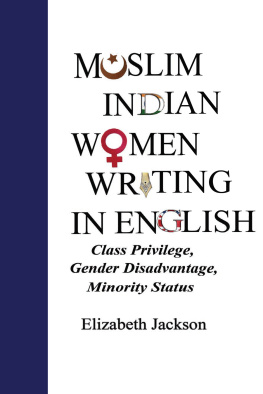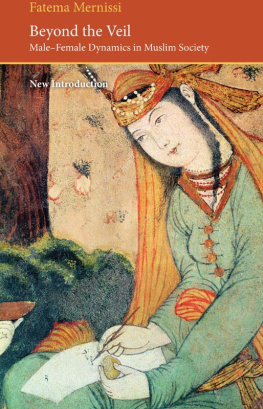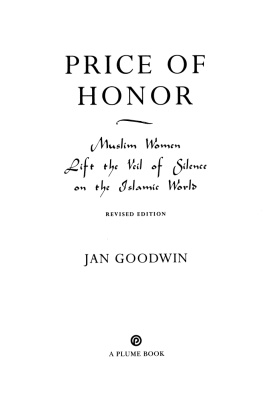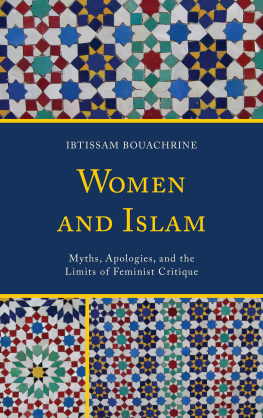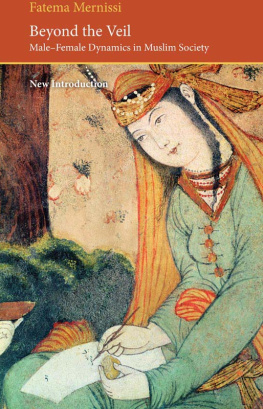Women and Islamization
First published 1998 by Berg Publishers
Published 2020 by Routledge
2 Park Square, Milton Park, Abingdon, Oxon OX14 4RN
605 Third Avenue, New York, NY 10017
Routledge is an imprint of the Taylor & Francis Group, an informa business
Karin Ask and Marit Tjomsland 1998
All rights reserved. No part of this book may be reprinted or reproduced or utilised in any form or by any electronic, mechanical, or other means, now known or hereafter invented, including photocopying and recording, or in any information storage or retrieval system, without permission in writing from the publishers.
Notice:
Product or corporate names may be trademarks or registered trademarks, and are used only for identification and explanation without intent to infringe.
Library of Congress Cataloging-in-Publication Data
A catalogue record for this book is available from the Library of Congress
British Library Cataloguing-in-Publication Data
A catalogue record for this book is available from the British Library
ISBN 13: 978-1-8597-3250-2 (hbk)
ISBN 13: 978-1-8597-3255-7 (pbk)
Contents
Karin Ask and Marit Tjomsland
Anne Sofie Roald
Soroya Duval
Wilhelmina Jansen
Marjo Buitelaar
Catharina Raudvere
Eva Evers Rosander
Zahra Kamalkhani
Guide
The idea to write this book originates from a seminar organized around the theme Construction of Gender Relations in Processes of Modernization: Women and Islamization at the Chr.Michelsen Institute in Bergen, Norway. The seminar received funding from the Norwegian Research Council for Science and the Humanities and the Norwegian Ministry of Foreign Affairs co-sponsored the work on editing and publication of the book. We gratefully acknowledge the financial support received from the abovementioned agencies and institution.
Much of the material has been changed since the original seminar, and some of the participants who presented papers and contributed to the development of arguments in the seminar in late 1994 have for various reasons been unable to publish their papers in this volume. We would like to thank Trude Eide, Aynur Ilyasoglu, Kirsten Sandborg, Heidi Skramstad and Annika Rabo for their contribution to the discussions in the seminar which encouraged our further work on the various draft manuscripts towards publication. The chapters in this volume written by Marjo Buitelaar, Wilhelmina Jansen and Soroya Duval have been included by invitation.
The different chapters of the book grapple with understanding the phenomena that in Western popular and scholarly discourse often are presented under the label religious fundamentalism. By investigating the positive variety of religious practice in a smaller number of case studies we seek to describe religion as something that takes place in everyday life and thereby is actively founded in the experiences of the believing woman. Implicitly we question what unites these beliefs and groups apart from our ascription of a specific negatively defined identity to them by the attributes non-modern, non-democratic, irrational.
A unifying approach for the different papers presented at the seminar was to analyze ways in which Muslim women develop distinct voices and participate in Islamization processes. The empirical cases presented highlight the creation of rooms for religious reflections and devotion, public meeting and discourse by the women engaged in Islamist resurgence.
In the cases presented and the questions raised, we try to conceptualize religion in ways that contest descriptions of womens relation to Islam as being universally its victims.
The chapters in this book draw upon fieldwork in different Muslim communities and include terminology from a number of different languages, namely Arabic, Persian, Turkish and Wolof. The material presented incorporates colloquial as well as literary usages. This poses considerable problems of transliteration and no attempts has been made towards a standardized presentation throughout the book, except for recurring words like the Koran. The editors have, however, sought to observe uniformity of spelling and style within the individual chapters. We have also sought as far as possible to omit the use of diacritics.
Karin Ask is a social anthropologist and research fellow at Chr. Michelsens institute. She has been doing basic and applied research in Afghanistan, Bangladesh and Pakistan. Her publications include: Veiled experiences: Exploring female practices of seclusion in Kirsten Hastrup & Peter Hervik (eds), Social Experience and Anthropological Knowledge (1994, London: Routledge) and Ishq aur Mohabbat: contrastive ideas on love and friendship in a northern Pakistani Community in T. Bleie, V. Broch-Due and I. Rudie, (eds), Carved Flesh/Cast Selves: Gendered Symbols and Social Practices (1993, Oxford: Berg).
Marjo Buitelaar is a cultural anthropologist and works as assistant professor at the Centre for Religious Studies of the State University of Groningen, The Netherlands. She is active in research and teaches on the subject of Anthropology of the Middle East and Islam. She has published numerous articles in Dutch and English on women in muslim culture and society. Among recent publications are Widows worlds. Representations and realities in J. Bremmer and L. van den Bosch, Between Poverty and Pyre. Moments in the history of Widowhood (1995, London & New York: Routledge) and Between oral tradition and literacy. Womens use of the holy scriptures in Morocco in A. Fodor & A. Shivtiel (eds), Proceedings and Colloquium on Popular Customs and the Monotheistic Religions in the Middle East and North Africa. Special issue of The Arabist. Budapest Studies in Arabic 9-10, Budapest. She is the author of Fasting and Feasting in Morocco. Womens Participation in Ramadan (1993, Oxford: Berg).
Soroya Duval is a research fellow affiliated to the Department of Sociology at Lund University Sweden. She did fieldwork for her PhD. thesis in Sociology in Cairo among female participants in Islamic groups. She has published articles in Swedish and English for example Socio-economic effects of Labour Migration on Women and Children in Egypt (1989) in Research Report Series Department of Sociology, Lund.
Wilhelmina Jansen is professor of womens studies and director of the Centre of Womens studies at the University of Nijmegen. Her main anthropological research was done in Algeria, which resulted in the book Women without men. Gender and Marginality in an Algerian town (1987, Leiden: E.J. Brill). Her current research deals with the history of womens education in Jordan, changes in gender identity during the life course and womens multiple identities.
Zahra Kamalkhani is a social anthropologist and research fellow at the Centre for Feminist Research in the Humanities at the University of Bergen, Norway. Among her recent publications are Womens Everyday religious discourse in Iran in H. Afshar (ed.), Women in the Middle East (1994, London: Macmillan Press). Her PhD thesis Womens Islam: Religious Practice among Women in Todays Iran (1997) is forthcoming.
Catharina Raudvere is assistant professor and teaches history of religions at the Faculty of Philosophy, Linkoping University. She has previously written on Old Norse mythology and Scandinavian folklore but has in the last years developed scholarly interest in Muslim groups in Turkey and is at present conducting fieldwork among female dervishes in Istanbul. Her disciplinary training is as an ethnofolklorist. Among her recent publications are Now you see her, now you dont: Some Notes on the Conceptions of Female Shape-shifters in Scandinavian tradition in Sandra Billington and Miranda Green (eds)


